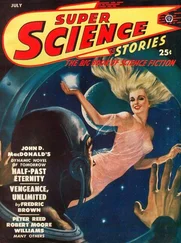“It wasn’t like solving a puzzle, Jimmy. And it wasn’t any great blinding flash of comprehension. The leaf was as much a part of some... orderly process as my daughter’s hand, both styled to live and die. I merely realized I wasn’t as empty as I had been. I felt a kind of a comfort. Whatever the leaf was, whatever my daughter’s hand is, even whatever the stone was I was sitting on, I was a piece of all of it, and all of it was a piece of me. And all that... that flow of reality, whatever it might be, it was certainly not something designed to benefit me. I felt ashamed, sort of. I felt I had shown a kind of witless, wicked arrogance to blame life for anything. A leaf could blame the tree for releasing it, and the stone could blame a glacier for carrying it away. You see, there’s no logic in it. It’s a kind of faith, I suppose. It’s my awareness of God, or I guess I should say Godness, because I’m more aware of a process than an entity. That awareness doesn’t make me miss Van any less. But it stops me from despising the other parts of life. It keeps me from poisoning myself. Jimmy. What do you believe in?”
“Me? Not very much. I don’t know. There’s as much chaos as there is order. There’s as much randomness as there is pattern. I believe in accident, mostly. I’m accidentally alive, and by being alive, I’m in the process of death. I believe in luck and good footwork.”
“With no purpose to any of it?”
“None that I can see at the moment.”
“That’s the emptiness I couldn’t endure, Jimmy. I’m too much of a coward to stand so alone.”
She looked at him in a quizzical way which deepened the small horizontal wrinkles above her rusty eyebrows. Her eyes were a shadowy gray in that light, her lips slightly apart. Her nearness was a magnetic field which pulled his mind into illogic, toward the threshold of words and acts which would mean nothing. He stood up quickly and with a great bursting effort, like a swimmer clambering up out of a pool.
“Did I say something wrong?” she asked.
“No. It’s just... I have to stop by the paper. I’d like to stay and talk. Thanks for the drinks and dinner, Kat.”
“You’ll see if you can find out who made Di resign?”
“I’ll try. I can’t promise anything.”
“I don’t want to get you in trouble with the paper because you’re trying to help us.”
“I’m not worried.”
The Palm County Commissioners met in Room 100 in the County Courthouse. It looked like a small auditorium in a country high school, a room which could double as a gymnasium or small ballroom. There were rows of folding chairs, enough to seat a hundred people. The seating area was separated from the dais area by a golden oak railing with a gate at the end of the center aisle. On the dais, raised about a foot above the floor level, was the long table at which the five commissioners sat, facing the audience. In front of the table, but down on the main floor level, was a smaller table with two chairs facing the commissioners. Behind the oak armchairs on which the commissioners sat were the United States flag and the flag of the State of Florida flanking a large detailed wall map of Palm County. The press table was to the left of the commissioners, and the staff table off to the right, where the secretaries, assistants and county attorney sat.
In front of the place where each commissioner would sit there was a table microphone. There was a sixth one on the small table facing them. The system reproduced voices in a harsh and metallic fashion, and was frequently afflicted by feedback, a thin screeing, yowling sound that always infuriated the commissioners.
When Jimmy Wing took his seat at the press table on Tuesday morning, the five commissioners were just filing in, followed by the staff. Wing was astonished to see Borklund at the press table. He looked into the audience and saw Colonel Jennings and Major Lipe sitting together and alone in a front row, their expressions stern and watchful. On the other side of the aisle was a group of about fifteen persons, most of them women, all wearing an expression of rigid indignation. Behind them were several young men, none of them familiar to Wing. They stood near a bulky object draped in white, which was leaning against the wall. They sat down as Gus Makelder, the commission chairman, called the meeting to order. The young men looked brisk, competent and attentive.
The atmosphere of the meeting was informal. As the minutes and committee reports were disposed of, the commissioners made small conversational asides to each other, laughed at small private jokes. Elmo Bliss was in the chair at the end of the table nearest the press table. He turned and nodded at Borklund, winked at Jimmy. Commissioner Stan Dayson and Commissioner Horace Lander were arguing with some heat about the bids on the concession at the public beach on Cable Key when Burt Lesser, Leroy Shannard, Bill Gormin and Martin Cable came through the side door into the spectator section, eased the door shut and tiptoed to the nearest vacant seats. Both Jennings and Lipe swiveled their heads around and watched the entire process.
“Any new business?” Makelder finally asked.
“Mr. Chairman!” a woman yelled in a piercing voice, jumping to her feet. “Mr. Chairman, I got something to bring up.” She came trotting down the aisle and through the gate and sat down at the small table. “I represent the Palmetto Circle Association. My name is Genevieve Harland.”
“Just speak into the microphone in a normal tone of voice, Mrs. Harland.”
“You put that wonderful storm sewer system in out at the circle, and it clogged up for that heavy rain we had last night, I mean night before last. All that water has tore out a big hunk of Palmetto Street. It come into four houses. And in the new houses out back of us, them septic tanks come a-floating right up out of the ground. Water is still standing around out there. I’ve been calling the County Health Officer, and the Road Supervisor and everybody I can think of and nobody has done one single thing, and we’re all sick and tired of the mess and the stink and having to come all the way around by Thompson Street to come into town. We want something done and we want it done fast!”
The commissioners muttered to each other. Makelder soothed her. He told her the storm had caused damage in other areas too. Crews were at work. He said Commissioner Bassette would follow her case up personally and inspect the area and see that the necessary work was done.
She thanked them in the same tone of voice she would have used to curse them, and stood up and marched out, followed by her entire group.
“Mr. Chairman,” Burt Lesser said. “My name is Burton Lesser. I am a realtor. I wish to petition the Board of County Commissioners, speaking as president of the Palmland Development Company.”
“Come down front, Burt,” Makelder said.
“Thank you, Gus. I have two of my associates with me, Mr. Gormin and Mr. Shannard. I’m sure you all know them. Mr. Shannard is secretary of the company, and Mr. Gormin is treasurer. I’ll ask Mr. Shannard to read and present the actual petition. In the meantime, I’d like your permission to set up a couple of exhibits.”
“You have it, Burt,” Makelder said.
Shannard read the petition and presented it to the board. As he read it, the brisk young men set up the exhibits. One was a greatly enlarged aerial photograph of Grassy Bay and the surrounding area. They mounted it over the county map behind the commissioners. There was a glassine overlay over the photograph, with the area to be filled marked in red grease pencil.
The second exhibit was considerably more impressive. It was a detailed table-top miniature of how the entire development would look after it was completed and all the houses had been built. There was a landscaped entrance, a serpentine wall, a tiny sign that read Palmland Isles . Bright cars speckled the blue curves of asphalt roads and made a herringbone pattern in the parking area of a shopping center facing Mangrove Road. Indigo canals wound through the filled land, with cruisers at miniature docks. The young men had set it up in an open area near the staff table, on low sawhorses.
Читать дальше
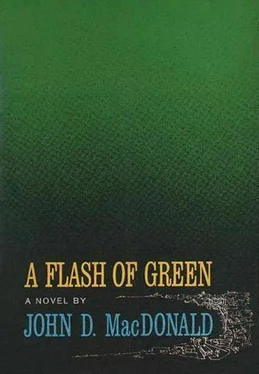
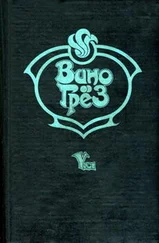
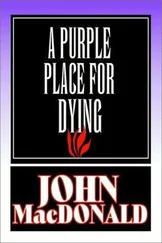

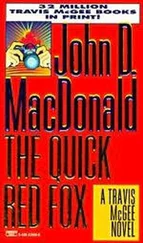
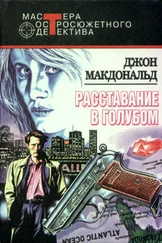



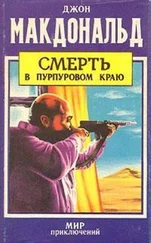
![Джон Макдональд - Wine of the Dreamers [= Planet of the Dreamers]](/books/430039/dzhon-makdonald-wine-of-the-dreamers-planet-of-thumb.webp)

